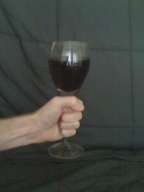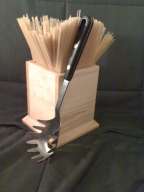Cheers (slow)
Too slow? Try the faster version in the previous post.
Click above to listen. You can get the mp3. here and the mp4. here (opens in a new window)
 Julian was a Polish guy who worked with us during our working holiday on a farm in France. He didn’t speak French or English very well, and we didn’t speak Polish at all, so it was sometimes very difficult for us to understand each other. Nevertheless he tried very hard and would talk all the time.
Julian was a Polish guy who worked with us during our working holiday on a farm in France. He didn’t speak French or English very well, and we didn’t speak Polish at all, so it was sometimes very difficult for us to understand each other. Nevertheless he tried very hard and would talk all the time.
He especially liked it when we sat down for a glass of wine or beer in the evenings, not because of the drink, in fact he was a teetotaller, but because he loved the rituals related to drinking. He got involved when we chinked glasses, making sure he looked everyone directly in the eye, like the French tended to do and he joined in with our toasts. We taught him to say ‘cheers’, as the English do, and ‘santé’, as the French do, and afterwards he insisted we say ‘prost’ with him, which we did thinking it was the Polish way to say ‘cheers’.
One evening, once our drinking rituals were complete and we’d settled down with our drinks to play cards, someone asked Julian about the word ‘prost’.
“What does ‘prost’ actually mean? Where does it come from and why do you say it?”
“I don’t actually know,” replied Julian.
“It’s the same for ‘cheers’,” I said, “I say it all the time, but I don’t know what it means, or why we say it.”
“Ah yes,” said Julian, “it’s the same in Polish, we say ‘na zdrowie’ but I’m really not sure why.”
“You say ‘na zdrowie’ in Poland? Don’t you say ‘prost’?” I asked, a bit confused.
“No,” said Julian. “I was saying ‘prost’ because I thought it was French.”
“I’m sure it isn’t French,” I said, “the French say ‘santé’, we were saying ‘prost’ because we thought that was what you say in Poland. I wonder where ‘prost’ comes from then?”
“I have no idea,” said Julian, “I learnt it in France from two guys I was working with on another farm; I’m sure they were French. What were their names? Oh I remember, Otto and Hanns.”
 Julian was a Polish guy who worked with us during our working holiday on a farm in France. He didn’t speak French or English very well, and we didn’t speak Polish at all, so it was sometimes very difficult for us to understand each other. Nevertheless he tried very hard and would talk all the time.
Julian was a Polish guy who worked with us during our working holiday on a farm in France. He didn’t speak French or English very well, and we didn’t speak Polish at all, so it was sometimes very difficult for us to understand each other. Nevertheless he tried very hard and would talk all the time.He especially liked it when we sat down for a glass of wine or beer in the evenings, not because of the drink, in fact he was a teetotaller, but because he loved the rituals related to drinking. He got involved when we chinked glasses, making sure he looked everyone directly in the eye, like the French tended to do and he joined in with our toasts. We taught him to say ‘cheers’, as the English do, and ‘santé’, as the French do, and afterwards he insisted we say ‘prost’ with him, which we did thinking it was the Polish way to say ‘cheers’.
One evening, once our drinking rituals were complete and we’d settled down with our drinks to play cards, someone asked Julian about the word ‘prost’.
“What does ‘prost’ actually mean? Where does it come from and why do you say it?”
“I don’t actually know,” replied Julian.
“It’s the same for ‘cheers’,” I said, “I say it all the time, but I don’t know what it means, or why we say it.”
“Ah yes,” said Julian, “it’s the same in Polish, we say ‘na zdrowie’ but I’m really not sure why.”
“You say ‘na zdrowie’ in Poland? Don’t you say ‘prost’?” I asked, a bit confused.
“No,” said Julian. “I was saying ‘prost’ because I thought it was French.”
“I’m sure it isn’t French,” I said, “the French say ‘santé’, we were saying ‘prost’ because we thought that was what you say in Poland. I wonder where ‘prost’ comes from then?”
“I have no idea,” said Julian, “I learnt it in France from two guys I was working with on another farm; I’m sure they were French. What were their names? Oh I remember, Otto and Hanns.”
